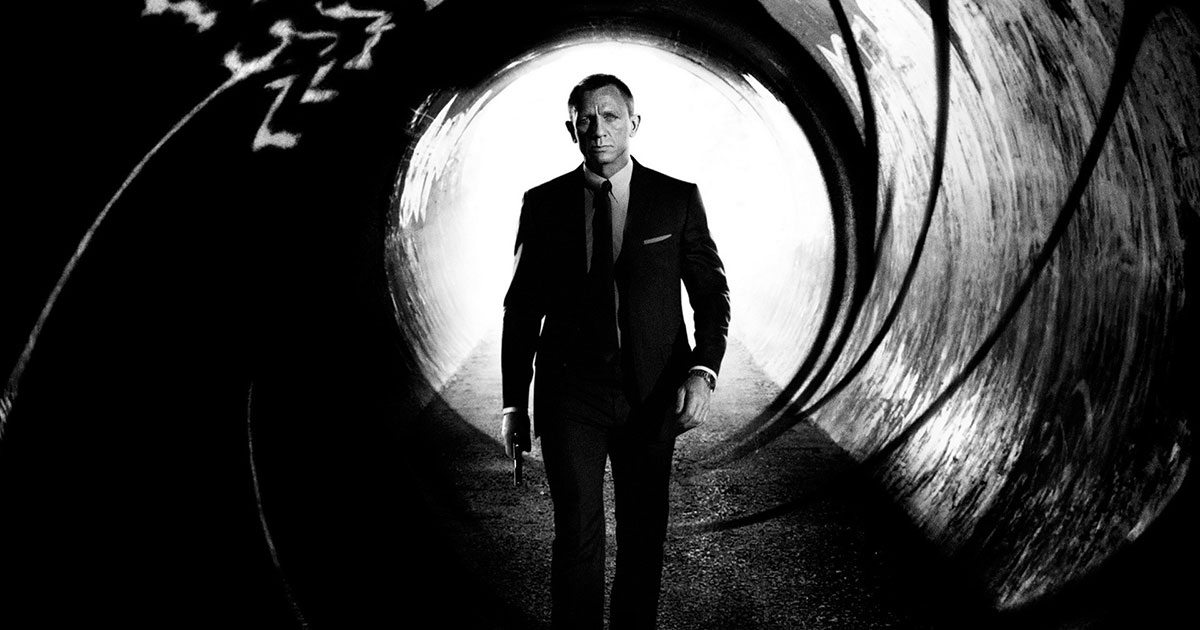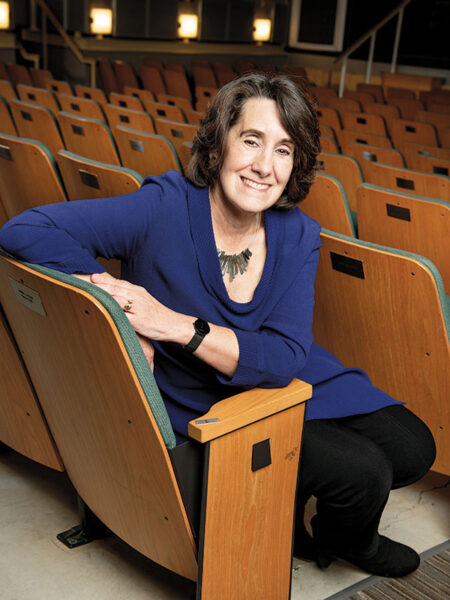Shaken, Stirred, and Uncertain: What Amazon’s Takeover Means for James Bond

Think of the James Bond movies, and certain things come to mind. A super spy. Exotic locations. Gadgets. A martini made a particular way.
One thing not typically associated with 007 is family business, but behind all the guns and glamour, that’s exactly what the film franchise is. For some six decades and 25 movies, from 1962’s Dr. No to 2021’s No Time to Die, one family has had creative control of the Bond movies.
“It was essentially a family business. I know that’s funny to say about a movie franchise, but they kept a tight rein on it. They had total creative control,” says Julie Levinson, a professor of film and the William R. Dill Governance Professor at Babson. “They were protective, and they did have a vision. They felt committed to the franchise.”
Now, that’s changing. Barbara Broccoli and Michael Wilson, siblings and James Bond producers, have ceded creative control of the franchise to Amazon, in the aftermath of the streaming giant buying MGM, 007’s longtime studio home. Broccoli and Wilson had steered the franchise since the mid-1990s, when they inherited it from their father, producer Albert “Cubby” Broccoli, whose roots with Bond go back to the very first movie.
There is much speculation about what Amazon, wanting a return on the $8.45 billion it spent to buy MGM, will do with James Bond. Many wonder if the streamer will flood the market with James-Bond related movies and TV shows, much like Disney has done, with mixed results, since buying the Star Wars film universe in 2012.
“There is some sadness that the baton has been passed. It is now a corporate property,” Levinson says. “The fear is it will no longer have the family business commitment to making sure the intellectual property remains true to its source. When something like Amazon takes over, it just becomes content.”
An Enduring Franchise
The news about James Bond comes at an uncertain time for the entertainment industry, as deep-pocketed streamers such as Amazon and Netflix have upended how people consume media. “There is terrific unease in Hollywood,” Levinson says. “Our delivery systems are different than those in the past. We are at such an interesting inflection point for film and television.”

This isn’t to say that concerns about business are new to movies. Actually, they’ve always been there. Yes, filmmakers want to win Oscars, but they also want to win the box office. “Movies are an art form, it is a technology, and it is a business. Those things are intertwined,” Levinson says. “From the early days of film, there is a real tension between wanting to make quality films, wanting them to be recognized, and wanting to make as much money as possible.”
Through the decades, James Bond movies have been particularly good at making money. When adjusted for inflation, the 25 movies that the Broccoli family produced have earned more than $6 billion in the domestic box office. “It is a cultural phenomenon and an enduring one,” Levinson says. “As a film and cultural historian, I am intrigued by its staying power.”
That staying power can be attributed to the hallmarks of the series: the cars, the songs, the action, the so-called Bond girls, and the spy at the center of it all. “He is an avatar of grace under pressure. He is an embodiment of cool masculinity. He never gets shaken or stirred,” Levinson says. “All of that has enduring appeal.”
After all these years, the series has a cozy familiarity with audiences. “We know what to expect in the rhythms, the settings, the characterizations by and large,” she says. “As in all genre movies, there is great pleasure in audience expectations being fulfilled.”
That being said, the series still tries to change with the times and even surprise. For instance, in the most recent movies, in which Daniel Craig played the spy, Bond remained tough and lethal, but he also was portrayed as more emotional and vulnerable, a depiction that reflected a re-evaluation of masculinity’s role in society. “The series has managed in some ways to be up to the moment and be responsive to the zeitgeist,” Levinson says.
Churn Out Content
One other way the Bond movies stay enduring and popular is that they don’t oversaturate the market, something that could change under Amazon. “Part of the mystique of the series is that it comes out intermittently,” Levinson says. “I would hope the producers want to maintain that mystique, that wonder in the audience.”
The concern with Amazon’s stewardship is that Bond might become as ubiquitous as the Jedi knights and superheroes of the Star Wars and Marvel universes. Could Amazon create TV series spotlighting secondary franchise characters such as Miss Moneypenny or Q? Could it release more frequent movies, even ones focused on other British spies? Think 002 or 005, along with the usual 007 fare. What about merchandising, something the Broccoli family shied away from?
“Part of the mystique of the series is that it comes out intermittently. I would hope the producers want to maintain that mystique, that wonder in the audience.”
Julie Levinson, professor of film
“I think they should avoid monetizing it in every direction possible,” Levinson says. “I think that will dilute the curiosity about the series.” Instead, she hopes Amazon will work on creating great movies centering on 007’s ongoing story, delivering thrills while focusing on the more complex characters that defined Craig’s Bond era. “I would like to see them continue in the direction they are going,” she says.
The temptation to churn out James Bond content, however, may prove too great for Amazon. While the streamers are capable of producing rich content—Levinson points to the Netflix series “Adolescence” as a recent example—she thinks they have gotten more conservative in a creative sense. Why produce something original and challenging to an audience when using existing intellectual property such as James Bond is so much easier?
“I think all of the streamers and studios are flailing from a business and creative perspective,” Levinson says. “I don’t think they know what to do.”
Posted in Insights




